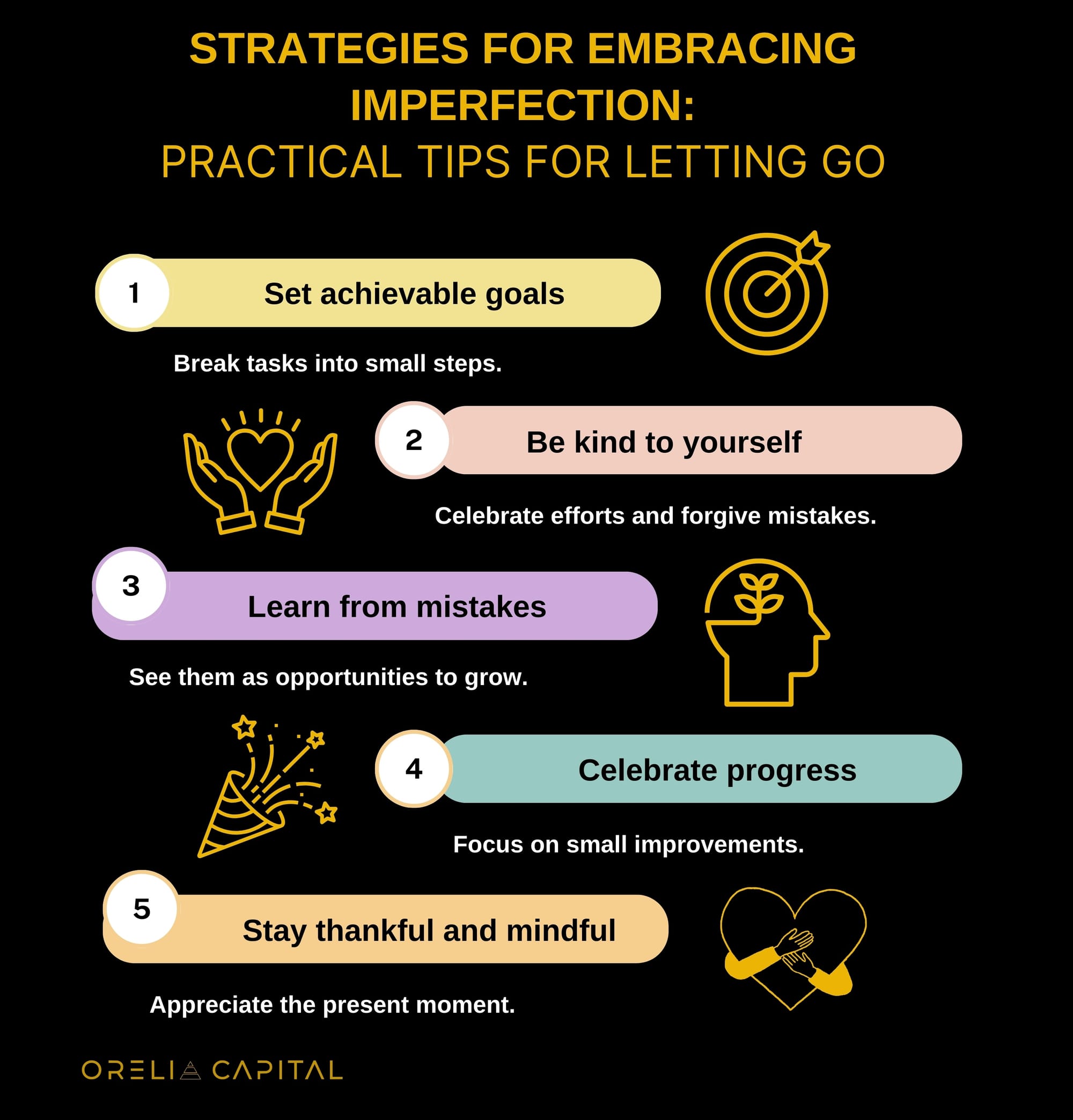Overcoming Perfectionism: Progress Over Perfection

Introduction
Perfectionism can be like a tricky maze - it pushes us to be our best, but sometimes it holds us back. In this article, we'll talk about how to beat perfectionism and focus more on making progress instead. We'll share practical tips to help you break free from its grip and live a happier, healthier life. Let's get started on this journey to overcoming perfectionism together!
Understanding the Perfectionism Trap: Exploring the Roots and Impact
Where It Comes From:
- Perfectionism often starts when we're young because of big expectations from parents or teachers.
- Seeing others do well can make us feel like we must be perfect, too.
Why We Feel This Way:
- We worry about failing or not being liked if we're not perfect.
- Wanting everything to be perfect makes us feel like we're worth something.
How It Affects Us:
- Being too focused on perfection can make us feel anxious or sad.
- Being close to people can make it hard because we're scared they'll see our flaws.
How It Hurts Our Bodies:
- Constantly worrying about being perfect can make us feel sick, like with heart problems or getting sick more often.
- Sometimes, we forget to care for ourselves, like not getting enough sleep or exercise, because we're too focused on perfection.

Cultivating a Growth Mindset: Shifting from Fixed Standards to Continuous Improvement
- Believe in "Not Yet": Think that if you haven't achieved something or learned a skill yet, it doesn't mean you won't in the future. This mindset focuses on getting better over time.
- Try Hard, Learn Lots: Focus on how much effort you put in and what you learn along the way instead of just caring about the result.
- Listen to Feedback: See feedback as a chance to understand and improve rather than feeling bad about yourself.
- Be Curious: Approach challenges with curiosity and a desire to learn, knowing it's okay not to have all the answers.
- Face Challenges: See challenges as chances to grow and learn rather than something to avoid.
Harnessing the Power of Self-Compassion: Building Resilience in the Face of Setbacks
Self-compassion means being kind to ourselves when things go wrong.
The Importance of Self-Compassion:
- Self-compassion helps us stay strong when life gets tough.
- It makes us feel better emotionally, reducing feelings of stress and sadness.
Practical Strategies for Cultivating Self-Compassion:
- Be mindful of your feelings
- Do things that make you feel good
- Talk to yourself kindly
Reframing Setbacks with Self-Compassion:
- Instead of being hard on yourself for mistakes, remember it's okay to mess up.
- See setbacks as chances to learn and grow, not as failures.
- Treat yourself with love and support like you would for a friend.
Creating Healthy Work-Life Balance: Finding Harmony Amidst the Drive for Perfection
Setting Boundaries:
- Decide when work starts and ends, and stick to those times. Don't let work take over your time.
Taking Care of Yourself:
- Do things that make you feel good, like exercising, relaxing, or doing hobbies you enjoy. Don't forget to take breaks during the day.
Spending Time with People You Care About:
- Spend time with your friends, family, and co-workers. Having people you can talk to and rely on is essential.
Managing Your Time Well:
- Plan your day so you can get important things done without feeling overwhelmed. Learn to say no to things that aren't a priority.
Asking for Help When Needed:
- Talk to your boss or colleagues if you need help balancing work and personal life. Don't be afraid to ask for support or flexible work options.
Conclusion
Overcoming the urge to be perfect is challenging but worth it. We can lead happier and healthier lives by focusing on making progress instead of aiming for perfection. Let's remember to take small steps towards our goals, be kind to ourselves, and enjoy the journey along the way.

We hope you enjoyed this edition of our newsletter. If you found it helpful, please consider sharing it with others who might benefit from this information.
At Orelia Capital, we believe that feedback is a gift. Your feedback can help us improve our content and provide more value to our readers.





